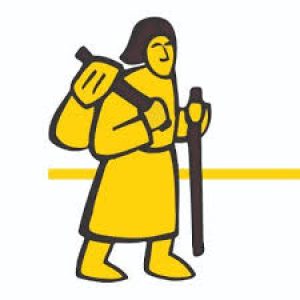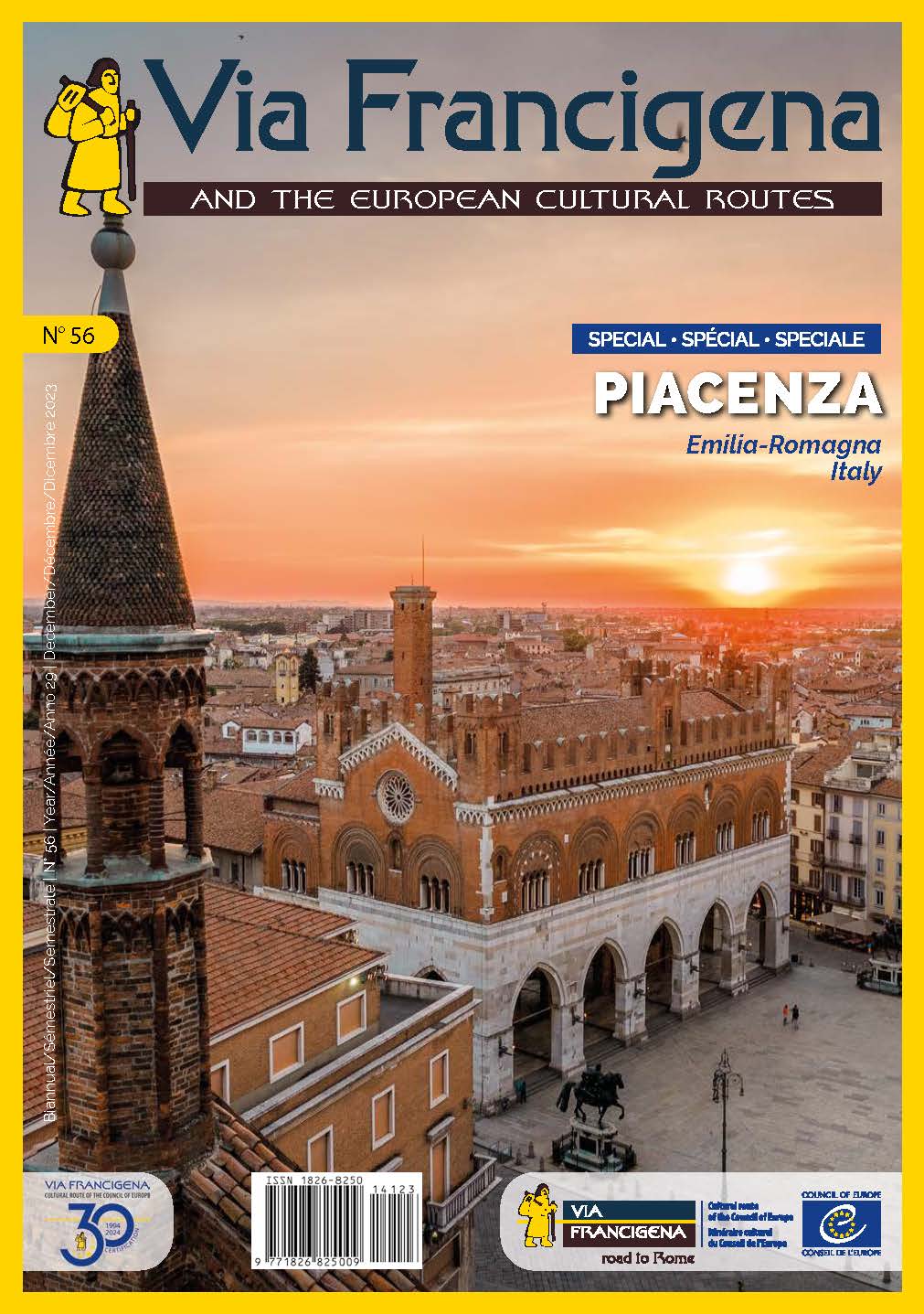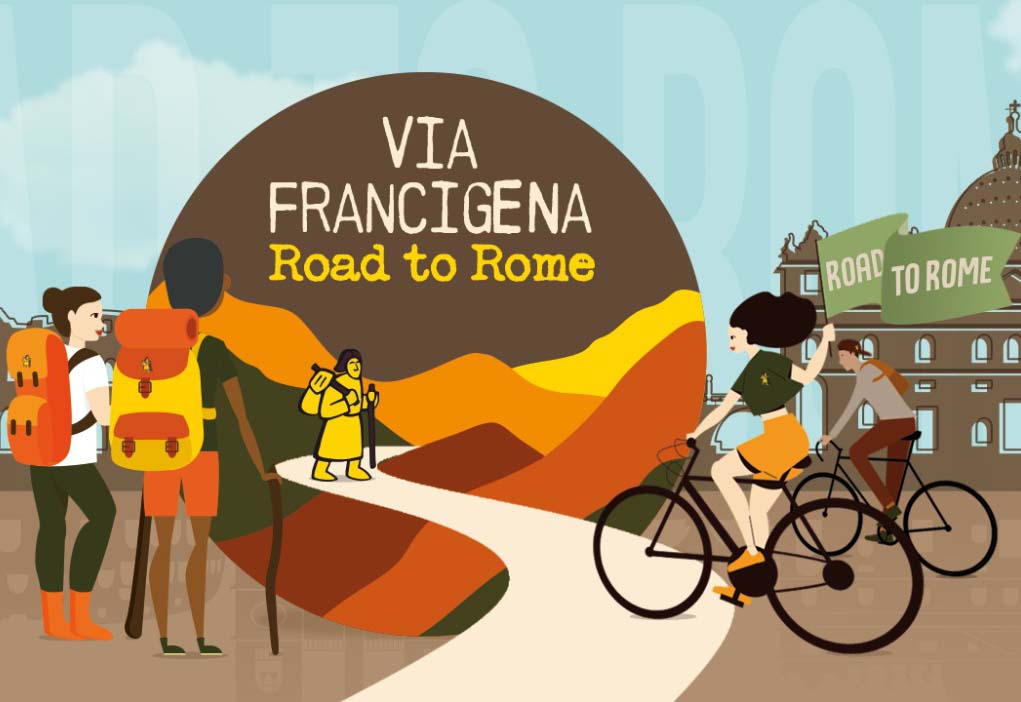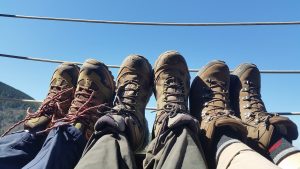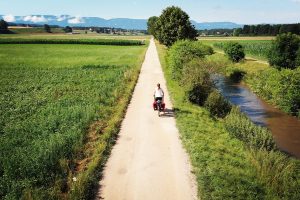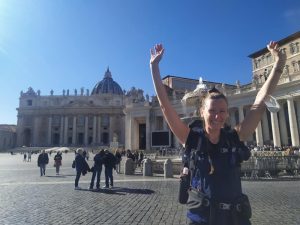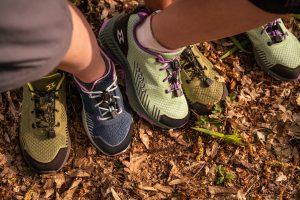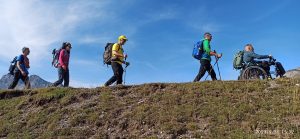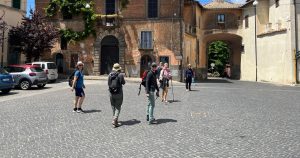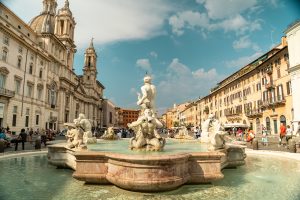What happens when a group of young students, guided by passionate experts, embarks on an extraordinary journey of over a thousand kilometers across Italy? A unique experience is born, breaking away from traditional frameworks and profoundly transforming those who take part in it. This is Strade Maestre, an educational project that celebrates walking as a tool for growth and discovery. The journey becomes a path of knowledge, allowing participants to immerse themselves in the natural and cultural richness of the places they traverse.
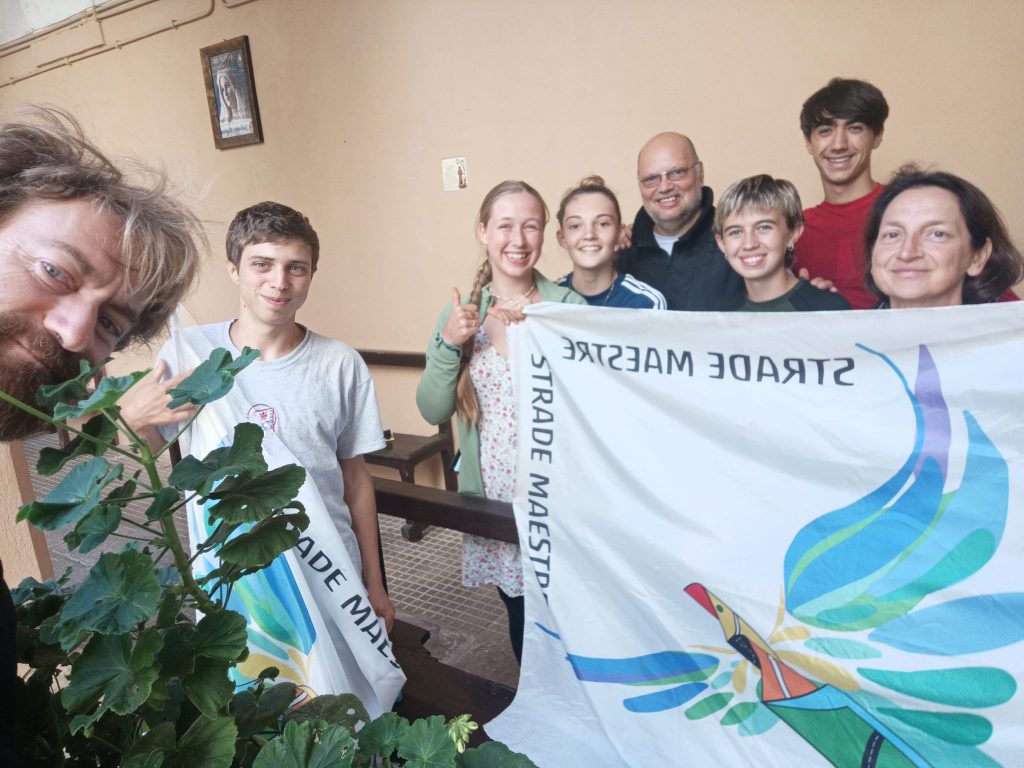
We interviewed Marcello Paolocci, co-founder of the project alongside Marco Saverio Loperfido, to learn more about this extraordinary initiative.
How did Strade Maestre come to life?
Strade Maestre is the result of a shared dream. Marco and I are environmental hiking guides with a deep passion for education and walking. We envisioned an experience capable of combining the joy of walking with the exploration of the territory, not only its natural aspects but also its cultural and human dimensions. Thanks to the collaboration of experts and supporters, this dream has become a reality.
Who is it aimed at?
Strade Maestre is designed for young people in the last three years of high school who, with their families’ consent, choose to dedicate a school year to an alternative educational path. The students spend about 240 days walking, accompanied by expert guide-educators, following an itinerary of over 1,000 kilometers across the Italian peninsula. The journey combines walking days with residential periods, during which the hiking practice is still actively maintained.
What are its main objectives?
Behind Strade Maestre is a network of guides, teachers, and experts in pedagogy, psychology, and sociology. This multidisciplinary approach aims to ensure a comprehensive educational experience, where every aspect of the journey is carefully curated.
The students embark on an extraordinary journey that culminates with a certification exam at a public state school, combining formal and informal learning through unique experiences tied to the territory.
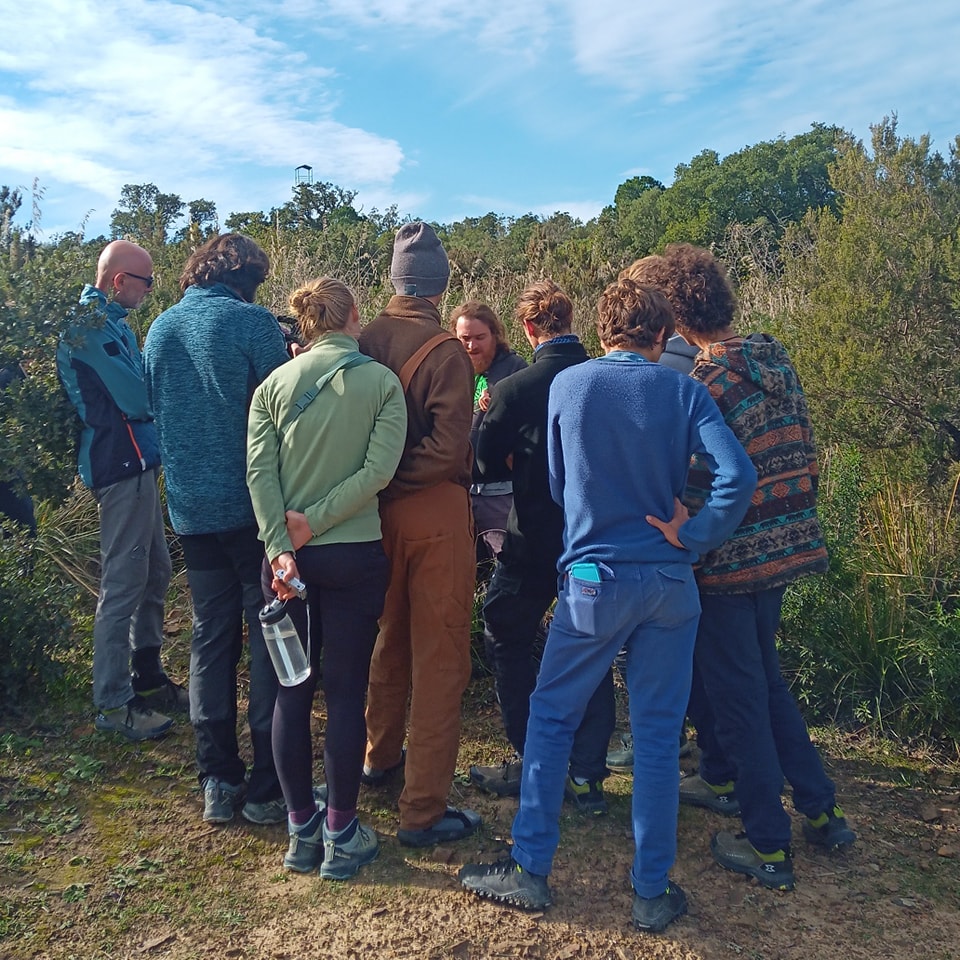
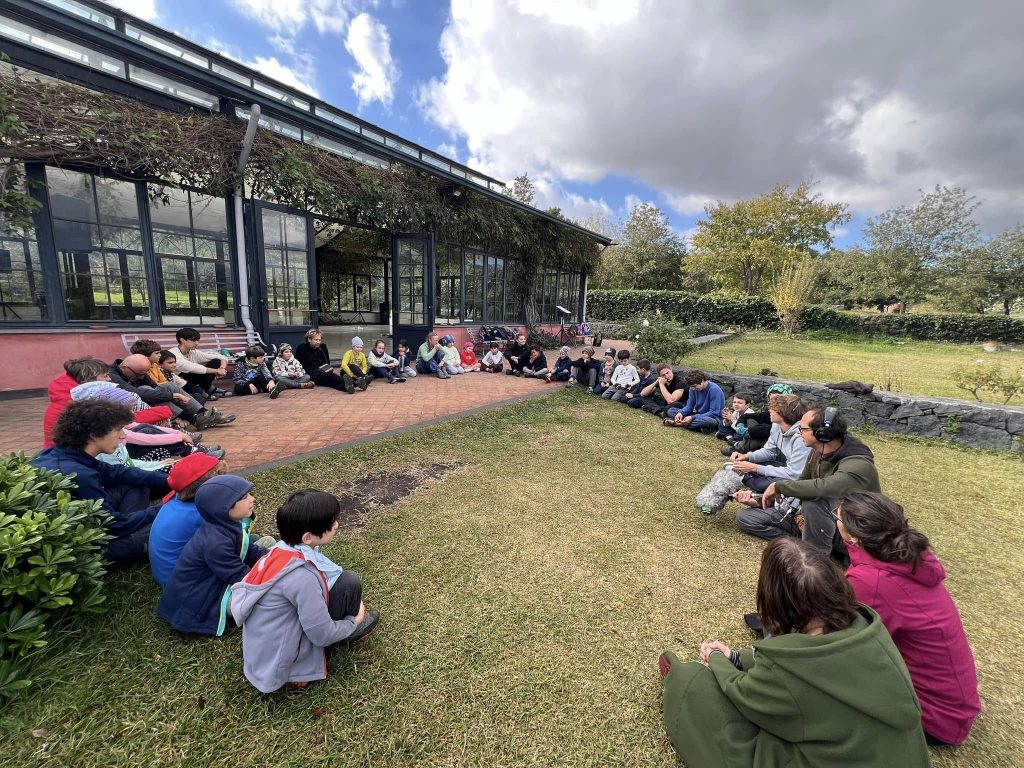
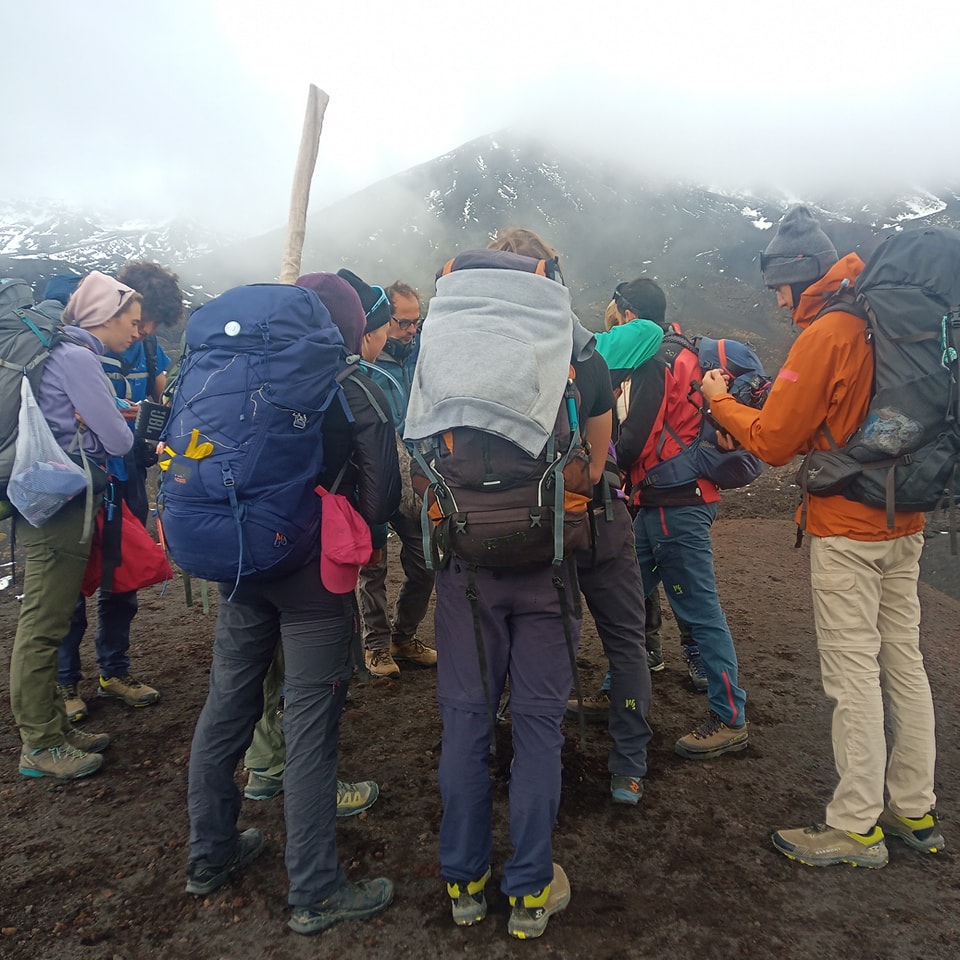
How has the project evolved in these first few months, and what milestones have you already reached?
The adventure began with two months of walking through the provinces of Terni and Viterbo, reaching Civitavecchia. From there, the group crossed the sea to Sicily, where they spent a month exploring the island. Each stage brought discoveries and challenges: one of the most significant was the difficulty of finding drinkable water in some inland areas of Sicily, an experience that taught the students the importance of resource management.
With some precautions in place, the project ensures sustainability and accessibility. The students use modern tools, such as smartphones, GPS, and digital platforms, while also integrating traditional methods like paper maps and compasses. This mix fosters practical and adaptable learning, essential for tackling the challenges of the journey.
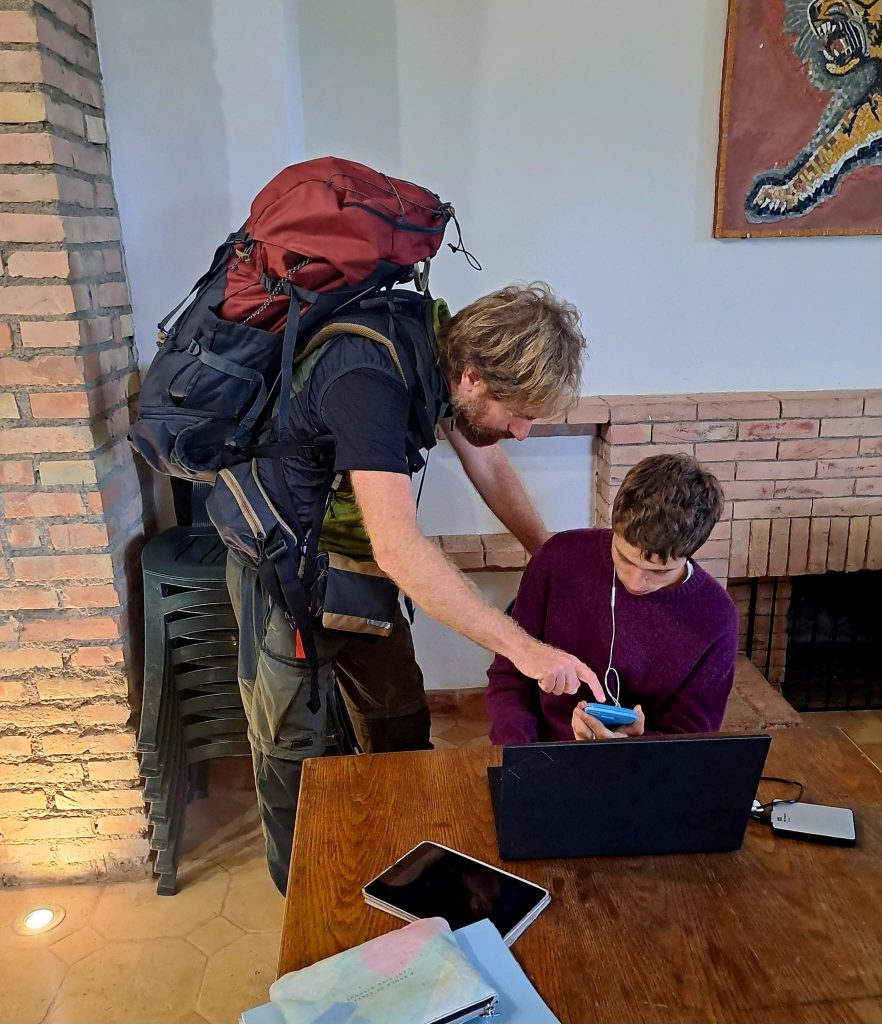
Strade Maestre is much more than a journey, it’s a way of learning through living. How are the walk and the discovery enriching the students’ learning experience?
The learning processes stem from the experience of the journey on foot, the encounters with people, and the visits to natural and cultural treasures, such as cities, countryside, archaeological sites, artisan workshops, and production facilities. These are connected by activities carried out with the teachers.
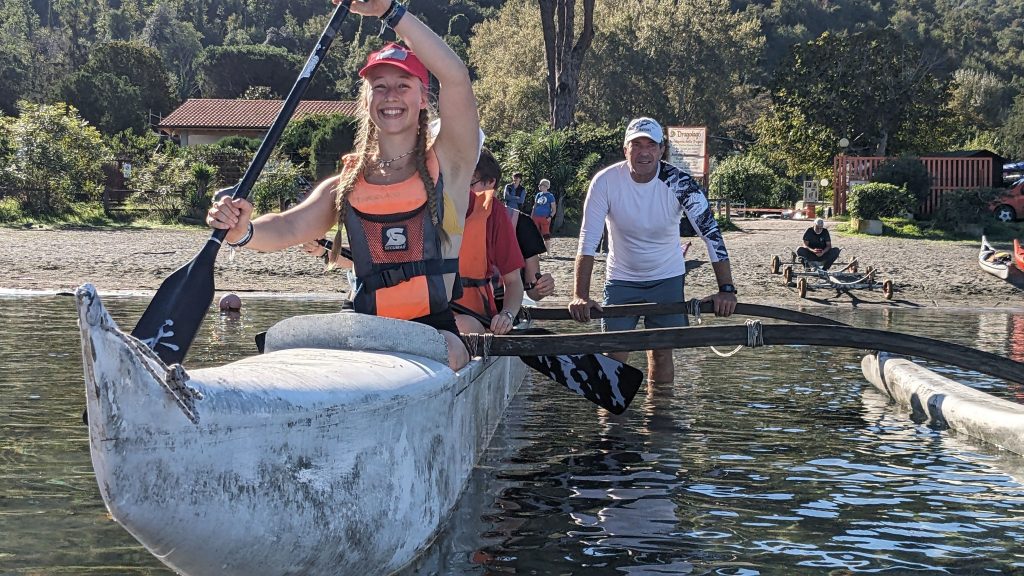
Marcello emphasizes how “the educational path of Strade Maestre is designed to be geographically focused. It offers live, real, concrete teaching and learning experiences, combining theory and practice, study and discussion. We will talk about geology on the slopes of Mount Etna and in the Campi Flegrei. About chemistry and the environment along a trail in the Apennines or in an industrial facility. About history in the places where history happened. We will visit Dante’s house in Florence. We will physically cross the Rubicon like Caesar or the Alps like Hannibal. We will reflect on the starry sky the night before sleeping outside the tent. We will observe plants to understand how photosynthesis works, both along the journey and in the lab with a microscope.”
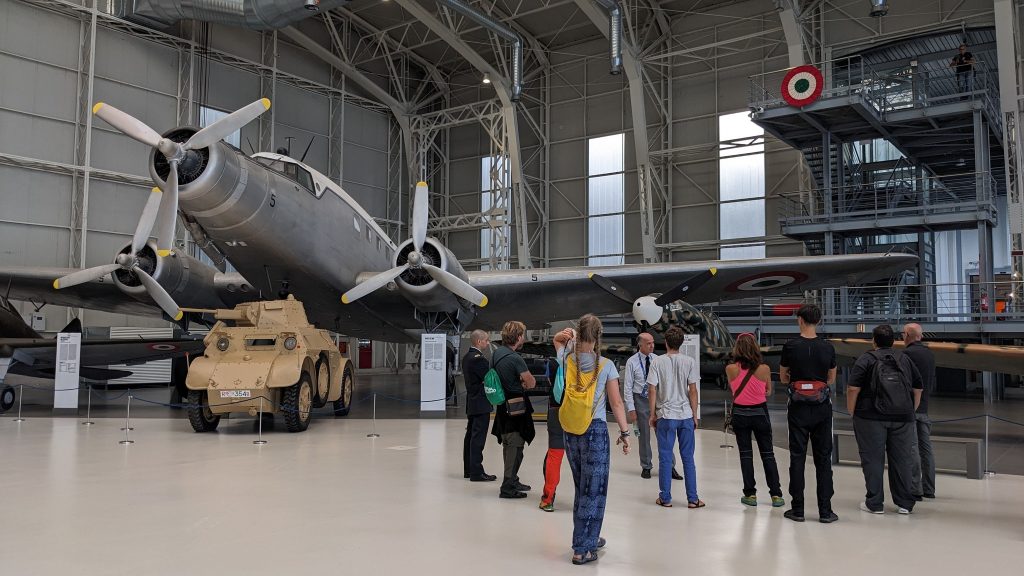
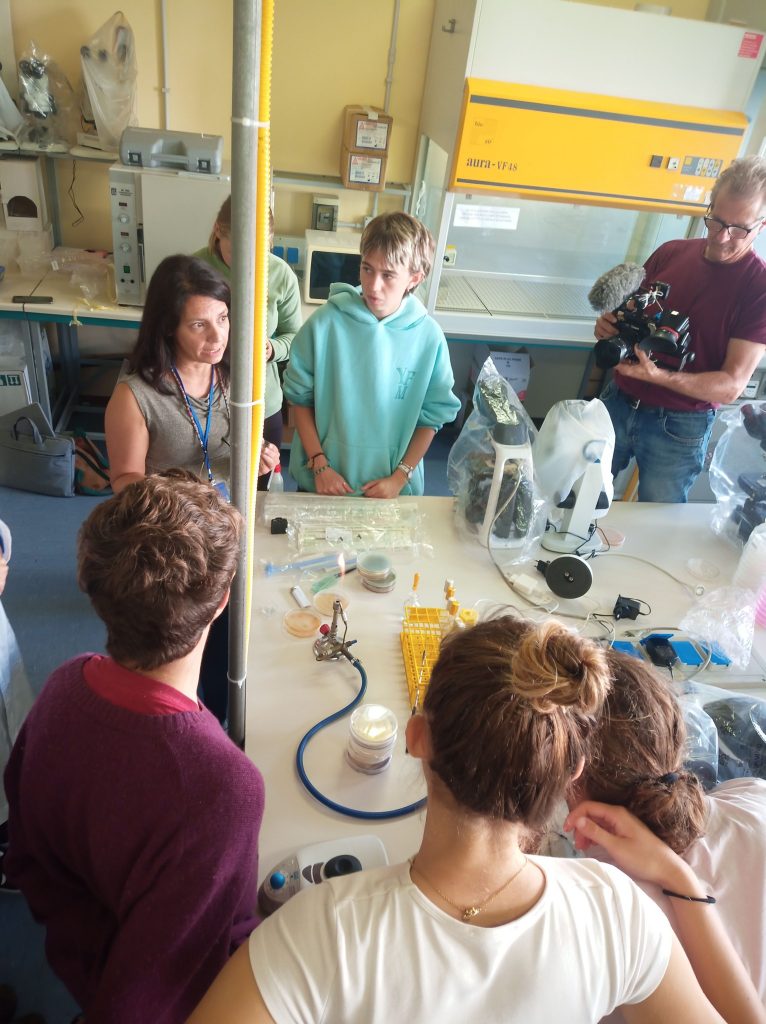
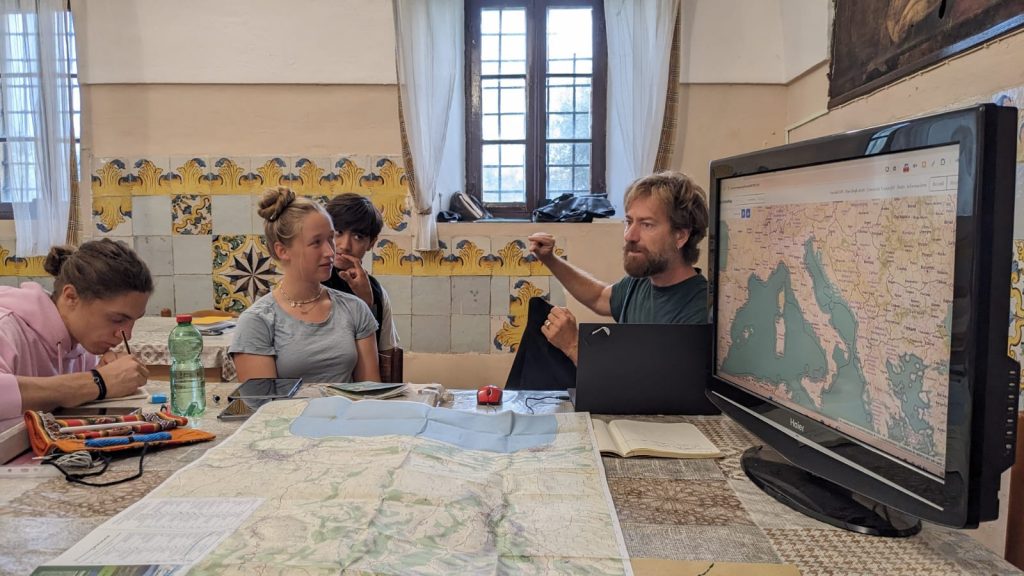
Referring to Robert MacFarlane, the British writer and traveler, the project shares the idea that “A place-less event is inconceivable, since everything that happens must happen somewhere, which is why history flows from geography like water from a spring: unpredictably but with place-specific characteristics.”
What do the protagonists of the project, the students, think about these first months on the journey?
The students describe the experience as transformative: a journey that not only enriches the mind but also the heart. After just a few months of walking, a significant growth is evident in the participants: greater adaptability, a spirit of collaboration, and increased self-awareness and group awareness. The students face challenges with determination and have developed a deep connection with the environment and the people they meet along the way.
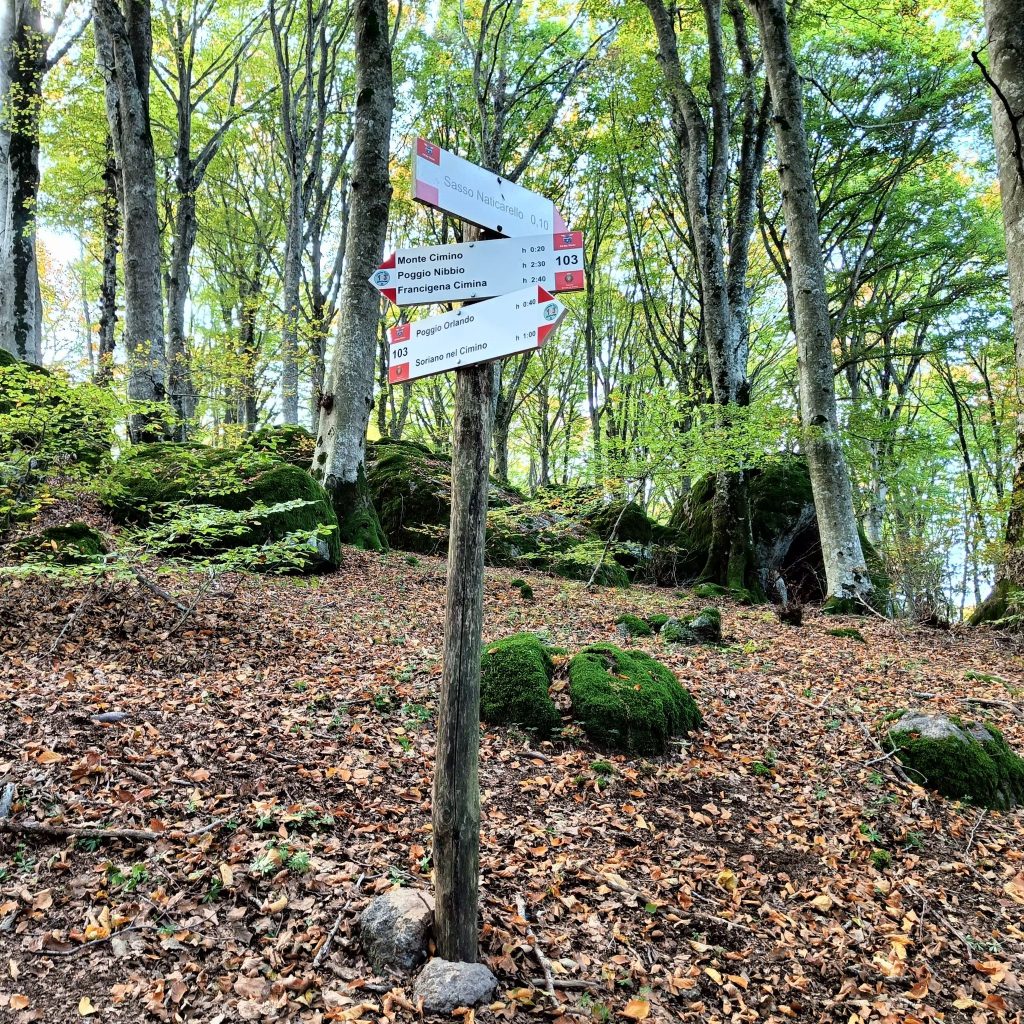
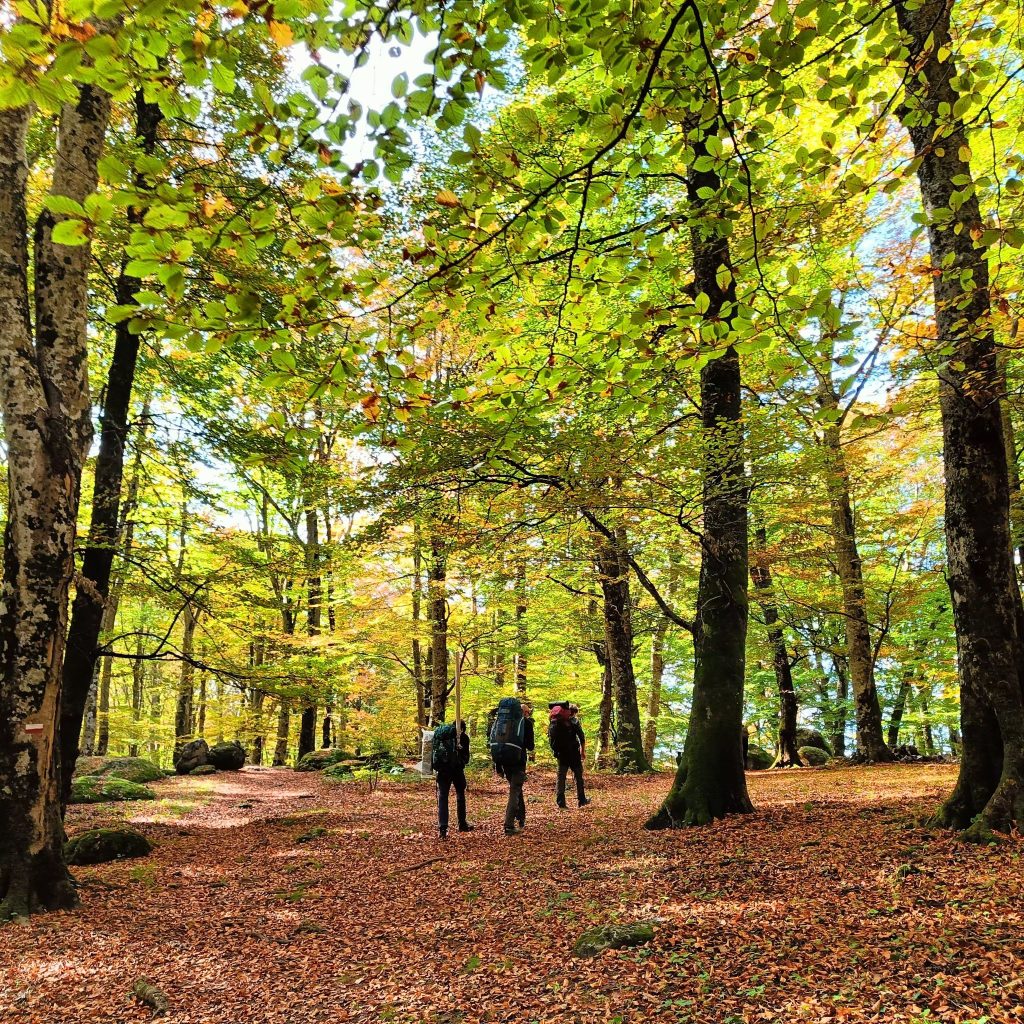
What are the future prospects of Strade Maestre?
The project aims to expand, including new regions and routes. Some of the places visited this year have left such a deep mark that plans are already in place to return. Additionally, the team is collecting material to refine the organization of future editions and evaluate new educational formats based on this unique experience.
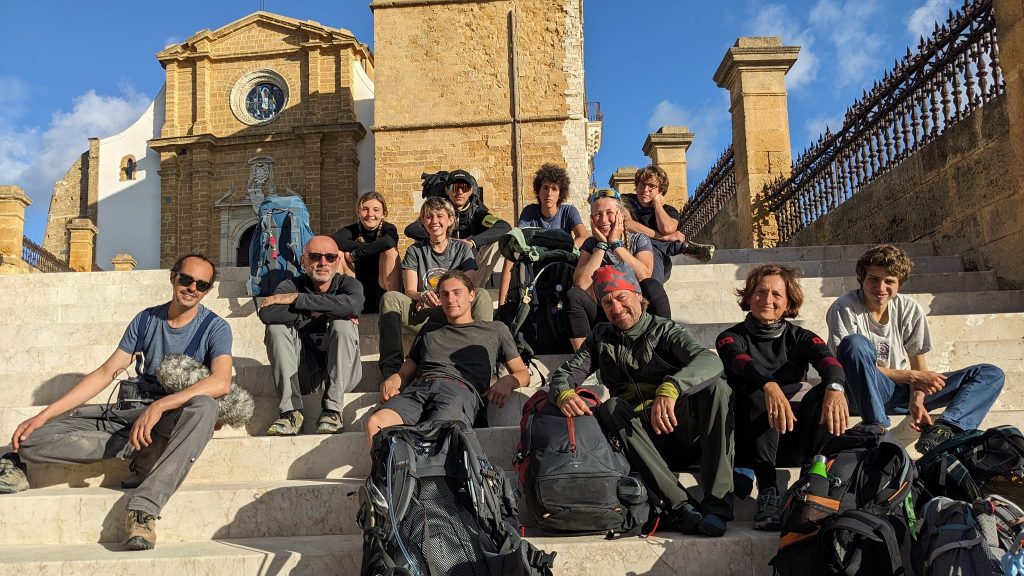
As the students of Strade Maestre resume their extraordinary journey after the Christmas break, we can only wish them to continue walking with curiosity, enthusiasm, and wonder.
Happy Journey!




